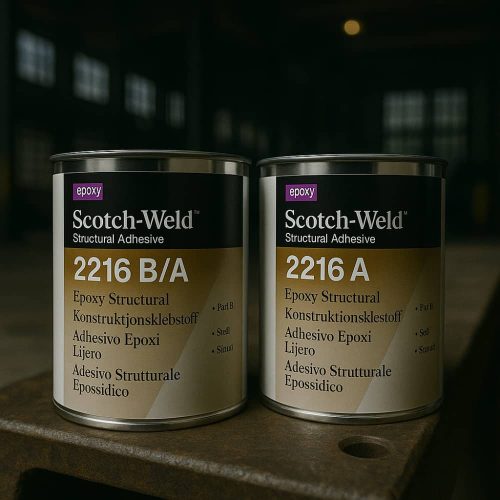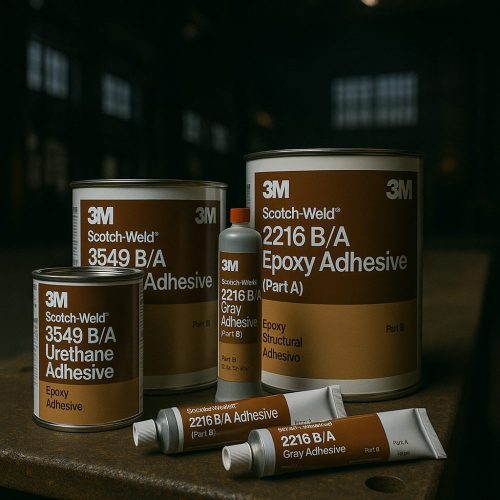The technical resins are liquid or semi-liquid polymers designed to cure by chemical reaction, generally by adding a hardener (two-component system).
They are used to assembly, protection, encapsulation or the filling of components in environments subject to mechanical, thermal or chemical stress.
Whether it's epoxy resin two-componentof silicone resin or polyurethane resin two-componenteach with specific characteristics to meet the needs of industrial sectors such as :


Using a resin that is suited to the environment in which it is to be applied means you can achieve reliable assembliesand durable protection and a high level of performance :
Resins are used for encapsulation, potting or filling of electronic boards, transformers, sensors or coils.
They provide :
Some resins are formulated to gluing structural partsIt can also be used to replace traditional fasteners (screws, rivets, welds).
They can be found in :
In environments with high energy density or close to sources of heat, resins guarantee a long service life. physical and functional separation between conductive elements :
Resins are also used for moulding of technical or decorative partsThey are ideal for applications such as rapid prototyping and the creation of complex-shaped components, thanks to their high fluidity before polymerisation.
La two-component epoxy resin is the most versatile. It offers :
It is used in structural assembly, electrical insulation and systems subject to high stress.
More flexible than epoxy two-component polyurethane resin is ideal for :
It is ideally suited to vibrating environments or environments with dynamic thermal cycles.
La silicone resin is prized for :
It is used for flexible moulding, protection of sensitive components or applications requiring a long service life without excessive hardening.
By choosing ADDEV Materialsyou can access a expert technical offer and personalised support:
Our mission: to help you improve the reliability of your components, à reduce the risk of breakdownand speed up your production rates thanks to appropriate technical solutions.
Do you have a specific project or a recurring need for technical resin?
Our engineers are on hand to analyse your constraints and make recommendations. the best-performing solution according to your industrial objectives.
📞 Contact our ADDEV Materials team as of now for a free diagnosis and a personalised recommendation.
It is a liquid or semi-liquid polymer which, when cured, forms a protective barrier or structural link. It is used for encapsulation, bonding, insulation or filling in demanding environments.
La epoxy resin is more rigid, with excellent mechanical and chemical resistance. The polyurethane resin is more flexible, more resistant to abrasion and better adapted to deformation and vibration.
Yes, the silicone resin is used to encapsulate sensitive components. It is resistant to humidity and thermal variations and remains flexible over time, avoiding stress on components.
Certain formulations (in particular polyurethane and silicone) are perfectly resistant to UV, rain, thermal shock and corrosionand are therefore suitable for outdoor.
Yes. The majority of our resins are compatible with dosing, mixing and injection equipment for use on production lines or in industrial maintenance.